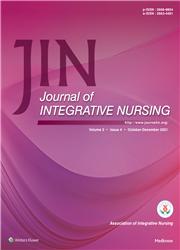An analysis of association of personality traits with job burnout among nurses working in hospital
Q4 Nursing
引用次数: 0
Abstract
Objective: The objective of the present study is to explore the effects of personality traits on job burnout among hospital nurses. Materials and Methods: This cross-sectional research was done during 2019–2020 at Kashan Shahid Beheshti Hospital. The data analysis procedures included descriptive statistics and the partial least squares-based structural equation modeling. The participants were 150 nursing professionals. A questionnaire indicating information on demographics, burnout (measured using the Maslach Burnout Inventory with three dimensions of depersonalization, emotional exhaustion, and personal accomplishment), and personality profile (measured employing the neuroticism extraversion openness five-factor inventory including extroversion, conscientiousness, agreeableness, neuroticism, and openness to experience dimensions) was used to gather the required data. Results: The results of the study showed that the validity and reliability of the measurement model were desirable (factor load higher than 0.5, the Cronbach's alpha value and the composite reliability are >0.7). Structural model showed statistically drastic, negative relationship between the nurses' burnout levels and neuroticism (β = −0.722) and openness to experience (β = −0.437). However, the relationship was significantly positive between the nurses' burnout levels and conscientiousness (β = 0.672), agreement (β = 0.594), and extraversion (β = 0.559) (P < 0.03). Conclusions: The present study helped the recognition of burnout among nurses working in hospitals and approved the effects of personality features on the burnout experience.医院护士人格特质与工作倦怠的关系分析
目的:探讨人格特质对医院护士工作倦怠的影响。材料和方法:本横断面研究于2019-2020年在Kashan Shahid Beheshti医院完成。数据分析程序包括描述性统计和基于偏最小二乘的结构方程模型。参与者是150名护理专业人员。采用人口统计学、职业倦怠(采用马斯拉克职业倦怠量表,包括去人格化、情绪耗竭和个人成就三个维度)和人格特征(采用神经质外向性开放五因素量表,包括外向性、尽责性、亲和性、神经质和经验开放性维度)的问卷来收集所需数据。结果:研究结果表明,测量模型的效度和信度较好(因子负荷大于0.5,Cronbach’s alpha值和复合信度均为>0.7)。结构模型显示护士职业倦怠水平与神经质(β = - 0.722)、经验开放性(β = - 0.437)呈显著负相关。护士职业倦怠水平与责任心(β = 0.672)、一致性(β = 0.594)、外向性(β = 0.559)呈显著正相关(P < 0.03)。结论:本研究有助于医院护士对职业倦怠的认知,并证实了人格特征对职业倦怠体验的影响。
本文章由计算机程序翻译,如有差异,请以英文原文为准。
求助全文
约1分钟内获得全文
求助全文
来源期刊

Journal of Integrative Nursing
Nursing-General Nursing
CiteScore
0.40
自引率
0.00%
发文量
3
审稿时长
17 weeks
 求助内容:
求助内容: 应助结果提醒方式:
应助结果提醒方式:


